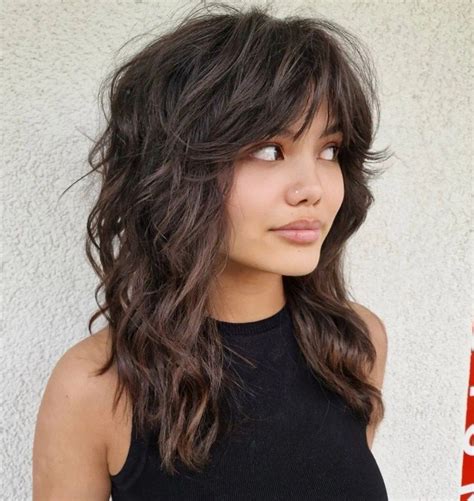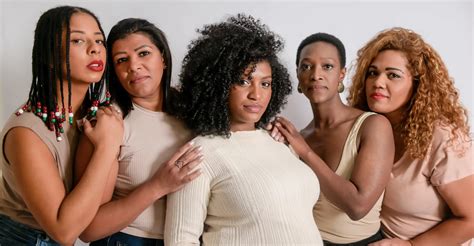The Unique Nature of Black Women’s Hair
Black women’s hair is characterized by its versatility, strength, and resilience. With a unique curl pattern and rich melanin content, it possesses a remarkable ability to adapt to a wide range of styles and treatments.

Historical Context
Pre-Colonial Africa
Black women’s hair has played a significant role in African cultures for centuries. It has been used as a symbol of identity, spirituality, and social status. Braids, locs, and other elaborate hairstyles were common among many African tribes, each with its own cultural and historical significance.
Transatlantic Slave Trade and Beyond
During the transatlantic slave trade, black women’s hair became a target of oppression and control. Enslaved women were often forced to shave their heads, a measure intended to dehumanize them and strip them of their cultural identity. However, despite these attempts at erasure, black women found ways to express themselves through their hair, braiding it in hidden ways and using it as a form of resistance.
Modern-Day Perspectives
Natural Hair Movement
In the late 20th century, the natural hair movement emerged as a response to centuries of European beauty standards that favored straight hair. This movement encouraged black women to embrace their natural curl patterns and reject chemical treatments that damaged their hair. Today, natural hair is celebrated for its beauty and versatility, and it has become an essential part of black women’s cultural identity.
Protective Styles
Protective styles are hairstyles designed to protect black women’s hair from damage. These styles, such as braids, twists, and locs, cover the ends of the hair and reduce friction, helping to prevent breakage and maintain healthy hair growth.
Embracing Versatility
Black women’s hair is incredibly versatile, allowing for a limitless range of styles. From sleek bobs to voluminous afros, braids to dreadlocks, black women can experiment with countless looks that reflect their personality and preferences.
Health and Care
Common Hair Concerns
Black women’s hair is prone to certain hair concerns, such as dryness, breakage, and scalp conditions like dandruff and eczema. These challenges are often due to the unique structure and texture of black hair, which requires specific care and maintenance.
Hair Care Regimens
To maintain healthy black hair, it is essential to use products and techniques that are designed for its specific needs. This includes using moisturizing shampoos and conditioners, avoiding harsh chemicals, and protecting the hair from heat damage.
Cultural Influences and Representation
Media Representation
The media has historically played a role in shaping perceptions of black women’s hair. Unfortunately, stereotypes have often portrayed black hair as unprofessional, unkempt, or undesirable. However, in recent years, there has been a growing shift towards more inclusive representation, with black women proudly showcasing their natural hair in all its glory.
Cultural Expression
Black women’s hair continues to be a powerful symbol of cultural expression. It is an integral part of the black experience, reflecting the resilience, beauty, and diversity of black women.
Innovation and the Future
Hair Care Technology
Advancements in hair care technology are constantly providing new and innovative products and treatments for black women’s hair. These include deep conditioning masks, moisture-locking leave-in treatments, and hair extensions that allow for greater creativity and style versatility.
Entrepreneurial Ventures
Black women are leading the charge in creating innovative hair care products and services that cater to the unique needs of their community. Many black-owned businesses are dedicated to providing high-quality hair care solutions that promote healthy hair growth and celebrate the beauty of black hair.
Tables
Table 1: Black Women’s Hair Care Statistics
| Statistic | Source |
|---|---|
| 80% of black women wear their hair naturally | Essence Magazine |
| 68% of black women experience hair breakage | Dove |
| 45% of black women use hair extensions | Mintel |
Table 2: Common Hair Concerns for Black Women
| Concern | Description |
|---|---|
| Dryness | Lack of moisture, leading to brittle and frizzy hair |
| Breakage | Damage to the hair shaft, resulting in split ends and hair loss |
| Scalp conditions | Infections or irritation of the scalp, causing dryness, itching, and dandruff |
Table 3: Hair Care Tips for Black Women
| Tip | Benefit |
|---|---|
| Use moisturizing shampoos and conditioners | Hydrates the hair and reduces dryness |
| Avoid harsh chemicals | Protects the hair from damage |
| Use protective styles | Prevents breakage and maintains healthy hair growth |
| Trim split ends regularly | Removes damaged hair and promotes healthy growth |
Table 4: Innovative Hair Care Products for Black Women
| Product | Description |
|---|---|
| Deep conditioning masks | Intense treatments that penetrate the hair shaft to hydrate and repair |
| Moisture-locking leave-in treatments | Seal in moisture and protect the hair from environmental factors |
| Hair extensions | Allow for greater creativity and style versatility |
FAQs
1. Why is black hair so prone to breakage?
Black hair has a higher cuticle count than other hair types, which means that its protective outer layer is more susceptible to damage from friction and heat.
2. What are the best ways to protect black hair from damage?
Protective styles, such as braids, twists, and locs, can help to reduce friction and prevent breakage. Additionally, it is important to avoid harsh chemicals, use moisturizing products, and limit heat styling.
3. What are the benefits of the natural hair movement?
The natural hair movement encourages black women to embrace their natural curl patterns and reject chemical treatments that damage their hair. This movement has led to increased self-acceptance and empowerment among black women.
4. How can I find black-owned hair care businesses?
Many black-owned hair care businesses have a strong online presence. Websites such as Black Owned Beauty Supply and Melanin Haircare provide directories of black-owned businesses.
5. What is the future of hair care for black women?
Advances in hair care technology and the growing awareness of the unique needs of black women are leading to a surge of innovative products and services that promote healthy hair growth and celebrate the beauty of black hair.
6. What is the term “crowning glory” used to describe?
“Crowning glory” is a phrase used to describe the significance and beauty of black women’s hair. It represents the pride and self-acceptance that many black women feel when they embrace their natural hair.
Conclusion
Black women’s hair is a rich and diverse tapestry, reflecting the strength, resilience, and beauty of black women. Throughout history, it has been a symbol of cultural identity, a form of resistance, and a source of pride. Today, black women’s hair continues to be celebrated for its versatility, adaptability, and cultural significance. With ongoing innovations and advancements in hair care, the future holds endless possibilities for black women to embrace and celebrate the beauty of their hair in all its forms.
